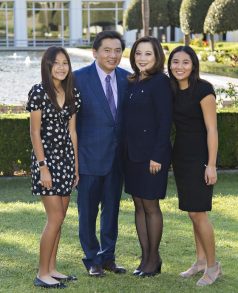BLOGS
We believe in being a force for good. This has been the core of our mission since our start in 2012. That’s why we maintain our ethical manufacturing processes and numerous humanitarian efforts. Live Good has also established ties with impactful local organizations uplifting their communities. Here, we are proud to highlight our powerful partners and the important work they tirelessly accomplish.
About Nicholas Academic Centers
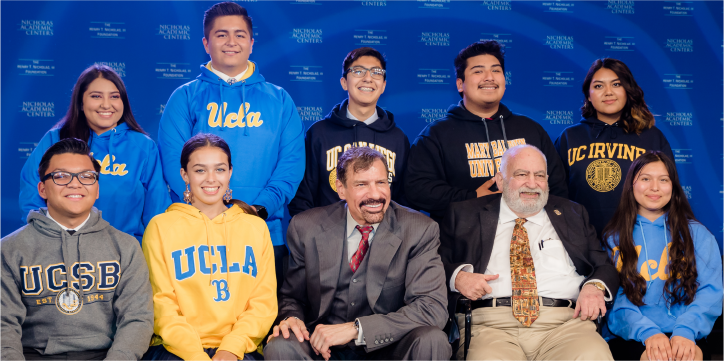
Live Good is honored to be partnering with Nicholas Academic Centers. Please share about the history of this impactful organization and all that it does for our community.
Although the NAC has only existed since 2008, an informal version of our program existed in the 80s and 90s. It was the idea of our Co-Founder, the late Judge Jack Mandel (The Judge)— he lived by the Jewish philosophy Tikkun Olam, which is of the belief that we must recognize that we live in a broken society and as citizens of this world, if we have the ability to, we should repair the world, give back, be of service to others. One day after leaving the bench in downtown Santa Ana, the Judge saw a group of kids doing their homework while sitting on the curb in front of a school. He inquired with the kids as to why they weren’t at the library, to which they responded that the school was closed and they had nowhere else to go. At the time Santa Ana Unified School District (SAUSD) was going through some changes and they had to make some budget cuts, which included cutting hours of the school library. Upon learning this, The Judge being who he was, set out to find a space for youth. So he set up a meeting with the then SAUSD Superintendent— and at the end of that meeting, he had convinced them to leave the school library open until at least 30 minutes after school ended so it gave the Judge enough time to leave work and get to the library in time to keep it open. The Judge would then keep the Santa Ana High School Library open until the early evenings. There he would tutor and mentor over a hundred kids. At times, the Judge’s wife, Judy, would also provide snacks to the students to help them reenergize for the afternoon. The Judge would also talk to the students about college— several of those students moved on to pursue higher education. And while those students were completing their college degrees, he would visit those individuals to make sure they were doing well. If they needed anything such as winter clothing for those who ended up in places where it snowed, he’d purchase those supplies for them. Not only did the Judge give his time, but also his personal money to those who really needed it— he changed the course of their lives. And as a result several of those individuals returned to Santa Ana and other communities, as college graduates, and helped continue to empower their communities as social workers, lawyers, educators and other professionals.
Then in 2007, a lawyer friend of the Judge introduced him to our other Co-Founder, Dr. Henry T. Nicholas, who provided him with the financial help in order for the Judge to continue mentoring the youth of Santa Ana. Everything the Judge did then, are now services that we provide to all of our NAC Scholars. He truly believed that if given the financial opportunity and providing the resources necessary, the youth of Santa Ana can succeed. The NAC has been in existence since 2008 and we have over 1,800 alumni of the program, with the majority of students being of Latinx descent and 97% first generation college students. That is 1,800 kids whose lives have had a positive impact— and in turn will impact others.
You have held many leadership positions at Nicholas Academic Centers. What do you love most about your current role as the Director of Operations and Events?
As a college student and theater major, I was highly influenced by events such as the Chicano (theater) movement, and most recently, the V-Day movement.
I wanted to produce work that not only entertained but had a message, an educational experience, if you will.
Looking back at the work I’ve done, they’ve all shared a common goal of being of service to others. As a Director of Operations and Events, my role allows me to work behind the scenes to make sure all of our students and their guests feel honored and welcomed. It’s a position that involves many tasks and, sometimes, nights of little sleep. But seeing the students beaming at our Annual Graduation Ceremony or their parents’ proud faces as they receive their diploma and college sweatshirts makes the stress worth it.
Tell us about your background. Where did you grow up and why are you so passionate about education and working with young people?
I grew up in both Garden Grove and Santa Ana with my parents and three siblings. My parents are originally from Mexico. Neither of them had college degrees nor wealth, so my parents had to work long hours to keep our family going— my father delivered milk and other dairy products in the community and my mother was in housekeeping. My dad worked seven days a week, which meant we couldn’t spend much time with him outside of birthdays and holidays. But we knew he was always there, and he’d find small ways to let us know he loved us. My mom, even if she have work, would find a way to make it to our events, be they school recitals, games, banquets or anything else. To this day, I have no idea how she did it, but she was always present and involved with us. Both of my parents loved us fervently. Though we had our struggles, we were definitely blessed to be in a household filled with love.
My parents did not have the opportunity to finish school— my mom left school during third grade because her father died young and she had to help her mom, and my dad could only finish high school and couldn’t go to college because he needed to work. They were very much aware of the benefits of completing education. My parents pushed us to do well in school and instilled in us humility and gratitude, reminding us that we were very fortunate that we could even attend school and go further. Also, they gave us the freedom to decide what we wanted to study, so long as it made us happy and we worked hard. So that certainly stuck with me throughout my journey.
But I also wasn’t blind to society and it’s inequities. I was fortunate that my parents taught us about the importance of an education because in school, it wasn’t as present. We didn’t have classes or programs like the NAC. In college, those inequities were only reaffirmed while learning more of the Civil Rights era, the Chicano Movement and other movements. I chose to not become a statistic— but not everyone had that opportunity. It’s by acknowledging this that I began to feel called to work in service of others with less opportunities than myself.
While in college, I had great role models who invested a lot of time in me. They empowered me to believe in myself by providing learning opportunities to continue to develop my talents. Because of their influence, I felt a strong desire to work in service of others, and eventually I applied to work as a teacher’s aide. In my role, I had the opportunity to work with college freshmen. And that moment changed me even if I didn’t see it then.
Fast forward to after college, I continued to work with youth, first at a youth home for the historically underserved, and then with the NAC where I have remained for almost 11 years. I work with a very passionate group of people and in them, I see the great potential, a better world that I know will come to fruition but only if we continue to invest time in our youth and of course the work that allow others to become empowered.
As Live Good is a UCI student-run sustainable company, we often ask our passionate team members about their future goals. But even an accomplished professional like yourself might like to reflect on this once in a while. So Diana, where do you see yourself in 5 years? In 10 years?
Something I recall my dad saying all the time was, “El mundo es tuyo,” or in English, The world is yours. Although I won’t conquer the world, this lesson has stuck with me— I was blessed to have been taught this growing up. And there is so much to do, which has led me to an abundance of goals: my appreciation for the culinary world, a passion for performance arts and writing, to my love for cultures, traveling, and history and of course, service. My 5-10 year goal has a little bit of all of it from living abroad and helping more communities, to creating opportunities and pursuing the arts.
Our Founder has great admiration for the late Judge Jack Mandel. In your experience working with him, what do you believe made him such a generous and impactful human being?
The Judge lived by the Jewish philosophy Tikkun Olam, the belief that we live in a broken society and that it is our moral responsibility to do everything in our power to repair the world. give back, and be of service to others. He grew up within the backdrops the Great Depression and World War II. As a young Jewish boy growing up in Eerie, Pennsylvania, he personally lived through many injustices and experienced financial hardships that would help him later empathize with similar struggles students have to endure today.
It was because of these experiences and many others that would later lead the Judge to collaborate with the SAUSD to create the Stay in School program. The program addressed high school dropout rates between 8th and 9th grade in Santa Ana by encouraging professionals to mentor youth. He would frequently visit classes to talk to the kids about college and being a lawyer and judge, even host tours and field trips to the courthouse. The Judge would let each kid sit at the bench so they could see themselves in that position. That experience, along with his work in family law, and the fact that the Judge embraced this philosophy, made him an impactful human being.
Although he came across a bit intimidating , he had a huge heart and had a way about believing in people, making them see how special they were, and pushed them to their full potential.
About Diana Tercero

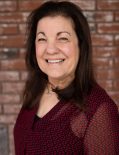
Pastor Cynthia Petty
I had always been involved in churches where women could lead, under the authority of a male pastor. So, this change in philosophy for “women in ministry” was revolutionary. I was honored and felt extremely humbled. And the thing I believe meant the most to me was how this would be groundbreaking for all the younger women ministers on staff who really did have the desire or dream to be a pastor one day!Read the full interview >
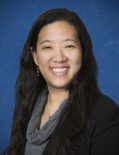
Esther Andrews
I think the primary piece of advice I would give my younger self is to take the time to learn who she is, her strengths and weaknesses and to limit comparing herself to other people or what people deem “normal” for as one of my uncles used to say “to be normal is abnormal.” Along these lines, I would also encourage my younger self to embrace all of who she is – strengths, weaknesses and all – and to seek how she can use the gifts she possesses to help others and to be open to how her weaknesses can also be a gift to others.Read the full interview >
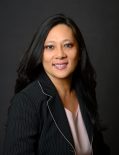
Geraldine Larson
We only get one shot in this life to become the best version of ourselves and to make an impact. If you’re just okay and nothing new is happening, then you’re not growing, and if you’re not growing, you’re getting left behind. We are all made for greater things; it’s a shame not to achieve that greatness.Read the full interview >
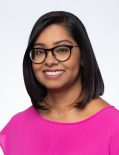
Anu Menon
I think it’s important to appreciate what is beautiful in the world even in the midst of a difficult situation and thank people for their contributions. Next is practicality – there are ups and downs and failures in work and life. I truly believe that the perfect is the enemy of the good so taking a practical and realistic approach to work is very helpful.Read the full interview >
INTERVIEW WITH MAYOR PEGGY HUANG
1. As the current Mayor of Yorba Linda, why were you inspired to run for public office and what is your vision for the community you serve?
Prior to my election, our city council was divisive and decisions on long term planning and infrastructure investments were not being made. There was a lot of fighting between “the past” and “the future.” I believed that my skills as an attorney to mediate and background on public policy could build a consensus on long-term economic plan that will ensure sustained sales tax base and infrastructure investment.
After I was elected, I set forth a 20-year economic development plan for our city. We improved our road condition to the highest federal highway ratings. Our city also built a new Town Center, Library, and Arts and Cultural Center. We do not have any general obligation debt on any of our public projects.
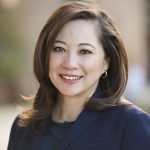
2. Tell us about your background. Where did you grow up and how did your childhood shape your journey?
I Immigrated to the United States when I was seven years old. I was the first non-English speaking student at my elementary school. Because there was no ESL classes, I learned English at my local library. Given that we were one of the few Asian families in our neighborhood, we faced racism and ridicule for not being able to speak English. I worked hard to learn English and the American culture so that no one could take advantage of our family. At the same time, I grew up in a very traditional, male-dominant family and my parents’ greatest hope for me was to marry a guy who will treat me well. Consequently, I pursued my career on my own and determination to succeed.
When I was five years old, my home was ransacked. It affected me tremendously. I still remember vividly how each room looked when I stepped into the house. I vowed I would become a prosecutor to put criminals behind bars. Unfortunately, I did not receive a lot of support from my family to pursue a legal career and they were adamantly opposed to my political involvement. However, I felt there was a need to pursue justice for victims of crime and I refused to give up my dream to be a prosecutor. I did not want to see another child be a victim of crime.
For as long as I can remember, my motto has been: “just ask the question,” because there is an opportunity for a gain and not a loss. I did not see a “no” as a rejection of me; rather, it was a rejection of the thing that I was asking for. I was never afraid to admit I did not know something and always sought help and mentorship. Because I had to learn English and navigate American culture on my own, I am fiercely independent and pursue issues by immersing myself in the subjects. This pursuit allows me to research and analyze issues without being unduly influenced by special interests.
Sometimes, people do not take me seriously because they assumed I looked younger than I am. They also assume that I am a housewife too! When I became a community activist, the city council members dismissed me and did not believe that I could get an entire neighborhood to oppose their agenda. I utilized my campaign skills and analyzed the subject matter to counter the city council’s special interest-backed project. I organized my community and personally knocked on nearly 1000 homes to get residents to sign my petition. I also did not appear before the council as a person who only said “no” but offered no solutions. I presented the city council with alternatives and modifications to their project that were more acceptable to residents. By showing the city council and residents that there are always ways to solve a problem without being hostile, I established myself as someone who could build a consensus and knowledgeable on city matters.
4. How has being a woman shaped your accomplishments?
As a woman, I feel more pressure to succeed than my male counterparts and I have to work twice as hard. Growing up, my parents’ hope for me was to marry a nice guy who could provide for the family and I stay home with the kids. I feel the society has the same expectations of me as do my parents. Even more, I think the society opine that women should not be in position of leadership because women are often thought of being emotional rather than logical. Within this framework, I have been successful in solving complex problems using logic infused with empathy, a much needed emotional ingredient that experiences the consequences of the solution. The compassion I have as a leader influences how I chart the solution and its effect on individuals. The balance of logic and empathy provides the human element to the solution. I think that a woman’s intuition is my greatest asset in finding innovative solutions that have positive impact in people’s lives.
5. In your opinion, what attitudes are crucial to success?
Have an attitude of never being afraid to ask. We should be mindful that we are starting with nothing when we ask another individual for something. If the individual declines, you do not lose anything. However, if the individual obliges, you gain something.
About Peggy Huang
Mayor Peggy Huang is a Deputy Attorney General in the Office of the Attorney General, Criminal Appeals, Trial, and Writs section. As a former Senate Fellow, Mayor Huang worked on the CALFED Bay-Delta project, which involved restoring the Bay-Delta ecosystem and water storage and delivery. As a trial attorney, she prosecuted individuals who abused and neglected clients in facilities licensed by the California Department of Social Services and represented foster children in juvenile court. She was involved in two bills, signed into law, that protected abused and neglected children. In addition, she successfully advocated for the decoupling of the Child Welfare Entitlement (Title IV-B) from the Federal Welfare Reform Act and protecting the Social Security Block Grant (SSBG) from reduction to ensure funding for at-risk and foster children.
She received her undergraduate degree at the University of California, Berkeley, and her Juris Doctorate, as well as a specialized certificate of governmental affairs from the University of the Pacific, McGeorge School of Law.
